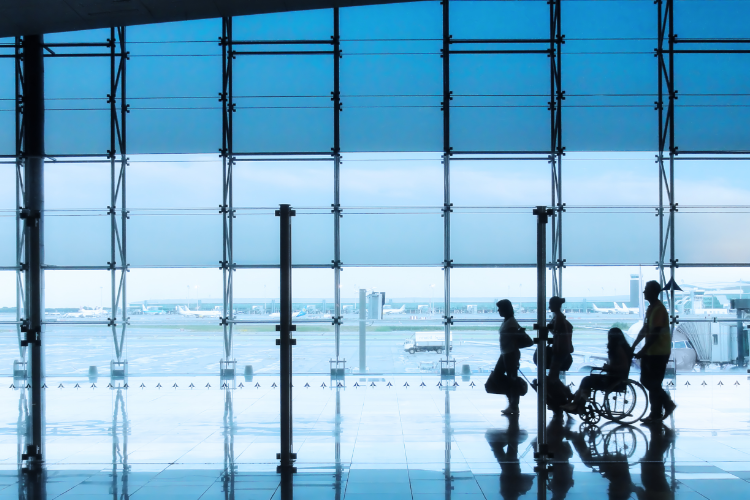Accessible tourism was the subject of the virtual round table “Viajeros con necesidades especiales, retos y oportunidades” (Travellers with special needs, challenges and opportunities) for 4th-year students of the Bachelor’s Degree in Tourism.

Accessible tourism was the subject of the virtual round table “Viajeros con necesidades especiales, retos y oportunidades” (Travellers with special needs, challenges and opportunities) for 4th-year students of the Bachelor’s Degree in Tourism. The protagonists of the debate were three travellers with special needs and different profiles who shared their experiences.
Manu Heras is an adventurer who fights for the right to travel regardless of disability and who has been all around the world in a wheelchair. His latest trip was along the Catalan Way of St. James to demand that similar spiritual routes be open to all.
Daniela Rubio is blind and works as an executive consultant at DRJ Consulting, a company dedicated to web development, accessibility, diversity and inclusion. Rubio shared her experience as a blind person who often goes on business trips.
Nina Roma is a graphic designer, writer and lecturer who shared her experience with Epidermolysis bullosa. “I’m a born traveller”, she assured the audience.
The speakers criticized the fact that often, the information on accessibility provided by tourism companies has little to do with reality or is insufficiently detailed. Nina Roma offered the example of a castle in Italy whose website announces that it is accessible to people with limited mobility, when in reality this is only true of the ground floor.
Other times, facilities are not properly adapted. Daniela Rubio shared her experience with a hotel room that was supposedly accessible for the blind, but where “the system for turning the shower on and off and controlling the pressure and temperature was digital.”
Manu Heras debunked the idea of Barcelona as one of the top destinations for accessible tourism. “One problem is how old the buildings are, which makes it very expensive to renovate them and make them truly accessible.” As for public transportation, Heras stated that it is improving, although there still are metro stations that are not accessible. “For me, Vancouver is one of the best cities—if not the best—in terms of accessibility.” Along the same lines, he noted that the US and Canada “are more open-minded about accessibility” than Europe.
This round table discussion was one in a series of joint sessions for the courses Business Strategies in Tourism & Hospitality and Innovation & Entrepreneurship. Students will enjoy similar discussions throughout the year and will be asked to work on a joint project.










